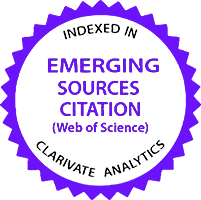Abstract— In recent years, there has been an increasing interest in smart city concepts in response to a growing demand for more sustainable and efficient urban spaces. In this paper, an in-depth exploration of load forecasting in an innovative city framework is carried out through the building of a software application with a graphical user interface (GUI) and prediction using long short-term memory (LSTM). To fulfill their role in enabling intelligent cities, accurate load forecasting is needed to enable energy management, reduce peak demand, and allow for well-informed decisions and energy distribution optimization. Specifically, in this work, we consider the application of LSTM to load forecasting systems within the context of a smart city. Since LSTM has a high capability in capturing complicated temporal structures, it is indeed an efficient approach to load forecasting, especially considering long-term dependencies. We focus on the strength of LSTM in comparison with the traditional statistical analysis and other machine learning techniques, most notably, LSTM’s ability to handle nonlinear and dynamic load behavior typical in innovative city energy systems. The GUI is the system’s front end where the user enters the data, and at this point, we have the city officials, energy managers, and the community people and get their customized load forecast. The discussion of the outcomes of the experiment with the cross-platform GUI application and the improved LSTM forecasting model is given. Based on the evaluation of the model in terms of accuracy and performance, the research is done in an accepted manner to predict the complex load pattern in a smart city environment by proving the efficiency of the LSTM model. The effectiveness of different decisions in various cases is evaluated to consider the influence on decision-making processes and energy optimization; various cases demonstrate how the proposed GUI application is helpful in facilitating better management of energy. This research will, therefore, endeavor to create knowledge in the area of energy management to foster the development of effective intelligent cities.
Keywords: Smart cities; Load forecasting; Long short-term memory; Energy management; GUI.
DOI: https://doi.org/10.5455/jjee.204-1728140025

![Scopus®_151_PNG-300x86[1]](https://jjee.ttu.edu.jo/wp-content/uploads/2024/03/Scopus®_151_PNG-300x861-1.png)
